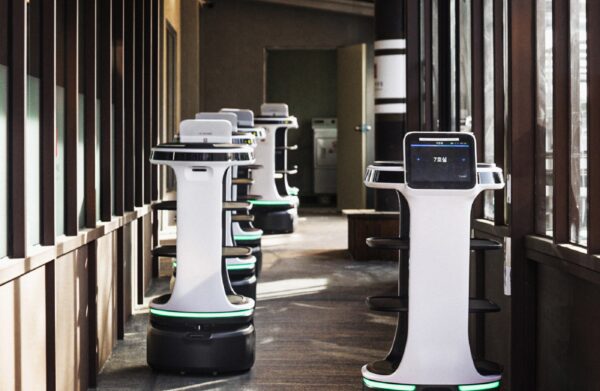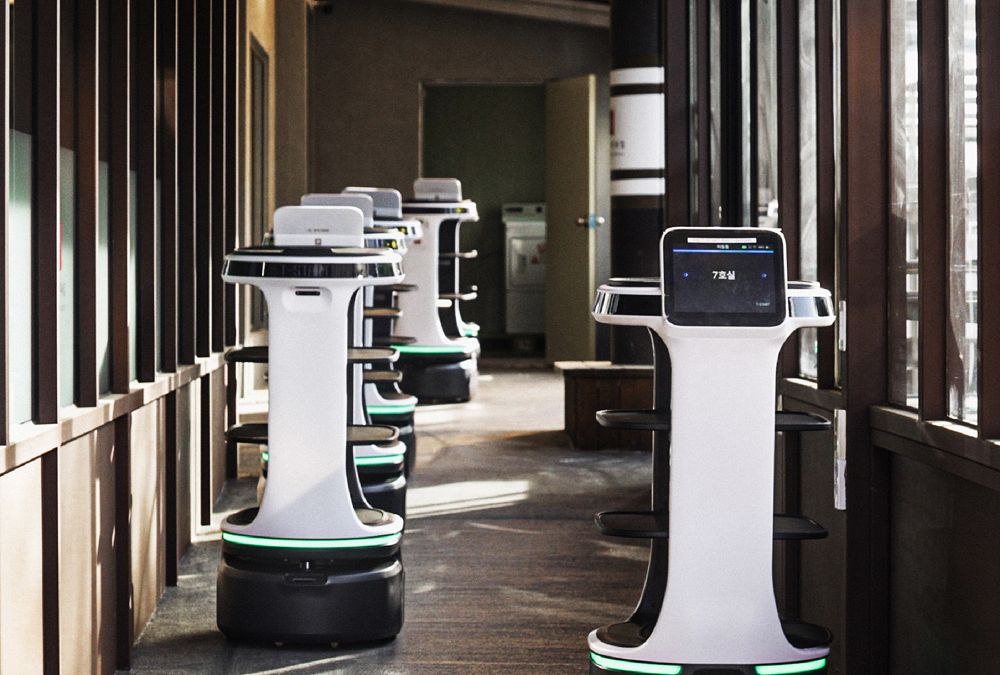Strategic investments aim to accelerate innovation everywhere
LG's commercial, residential and industrial robotic solutions

SEOUL, January 24, 2025 – LG Electronics (LG) has taken a significant step in advancing its robotics capabilities by securing a majority stake in Bear Robotics, a well-known Silicon Valley-based startup specializing in AI-driven autonomous service robots. This acquisition is in line with LG's strategy to strengthen its presence in the robotics sector, a key growth area for the company.
On January 22, LG's board exercised a call option to acquire an additional 30 percent stake in Bear Robotics. This follows an initial investment of $60 million in March 2024, which secured LG a 21 percent stake and a call option agreement for up to an additional 30 percent stake. Upon completion of the exercise of the call option, LG will hold a controlling interest of 51 percent in Bear Robotics, effectively incorporating it as a subsidiary.
As part of this strategic move, LG's commercial robot business, primarily focused on “LG CLOi Robots”, will be integrated into Bear Robotics. Bear Robotics' core management team, including CEO John Ha, will remain in place to ensure stable business continuity and will continue to focus on creating synergies in LG's commercial robot business.
Founded in 2017, Bear Robotics has made a name for itself with its AI-powered indoor delivery robots, serving markets in the US, South Korea and Japan. The company is known for its expertise in distributed control of multiple robots, remote fleet management systems, and AI-powered robotics platforms.
LG is looking to expand its presence in the commercial robot market through Bear Robotics. At the same time, LG intends to leverage its AI and manufacturing expertise to strengthen its home and industrial robot business.
The home robot segment is led by LG Home Appliance Solution Company, a renowned industry leader. The company's focus is to provide a holistic experience where home robots powered by LG's Affectionate Intelligence can discern the well-being of family members and seamlessly integrate with home appliances and services.
A prime example of this vision is the self-driving AI Home Hub (project name: Q9), scheduled for release later this year. The Q9 uses multimodal sensor capabilities that include voice, sound and image recognition, coupled with autonomous driving technology. This enables effortless navigation through the home, accurately identifying user status and effectively responding to their needs by seamlessly connecting and controlling home appliances and IoT devices. The Q9 deftly overcomes obstacles such as carpets and uneven surfaces, while its expressive display conveys emotion and promotes improved interaction and participation.
The Q9 also features Microsoft's speech recognition and synthesis technology, which enables natural and intuitive conversations with users. Its ability to understand different accents, pronunciations and slang expressions caught the attention of CES 2025 attendees. To promote an open development ecosystem, LG also introduced a Software Development Kit for the Q9 and encouraged developers to further expand its capabilities .
In industrial robots, a cornerstone of LG's smart factory business, the company's manufacturing technology research institute is driving significant revenue growth by integrating AI and digital transformation. An important example is the Autonomous Vertical Articulated Robot, which uses sensors such as cameras, radar and LiDAR to perceive its environment, navigate efficiently, provide materials and use its robotic arm to carry out tasks such as assembly and error checking. This innovation enables seamless automation of a range of operations.
LG CEO William Cho emphasized the importance of this investment in his speech this month at CES 2025 in Las Vegas, declaring, “Robots are a certain future.” the self-driving AI Home Hub and other home robots to create a “zero laboratory Home”.
The acquisition of management control of Bear Robotics is expected to create synergies across LG's robotics business, including commercial robots. As the robotics industry increasingly shifts toward AI-centric solutions, this collaboration will significantly enhance LG's overall robotics software capabilities. LG intends to create an integrated software platform for commercial, industrial and home robots using Bear Robotics' technology. The aim of this platform is to provide a consistent and high-quality user experience across various applications. By universally applying this integrated platform to the development of various types of robots, LG expects to shorten development cycles.
LG's advanced manufacturing capabilities and supply chain management expertise are aimed at improving the operational efficiency and market responsiveness of its robotics business. Additionally, the extensive global distribution network established through its B2B operations will facilitate broader product distribution. By integrating commercial robots into a range of B2B solutions, including hotel televisions, signage and IT equipment, LG can gain a competitive advantage through a turnkey ordering approach and deliver tailored products that meet the specific needs of enterprise customers.
“This additional investment underscores our commitment to positioning robots as a key growth engine for the company and reflects our belief in their inevitable role in the future,” said Lee Sam-soo, chief strategy officer at LG Electronics. “We will continue to drive innovation across all areas of robotics, including commercial, industrial and residential applications.”
# # #
